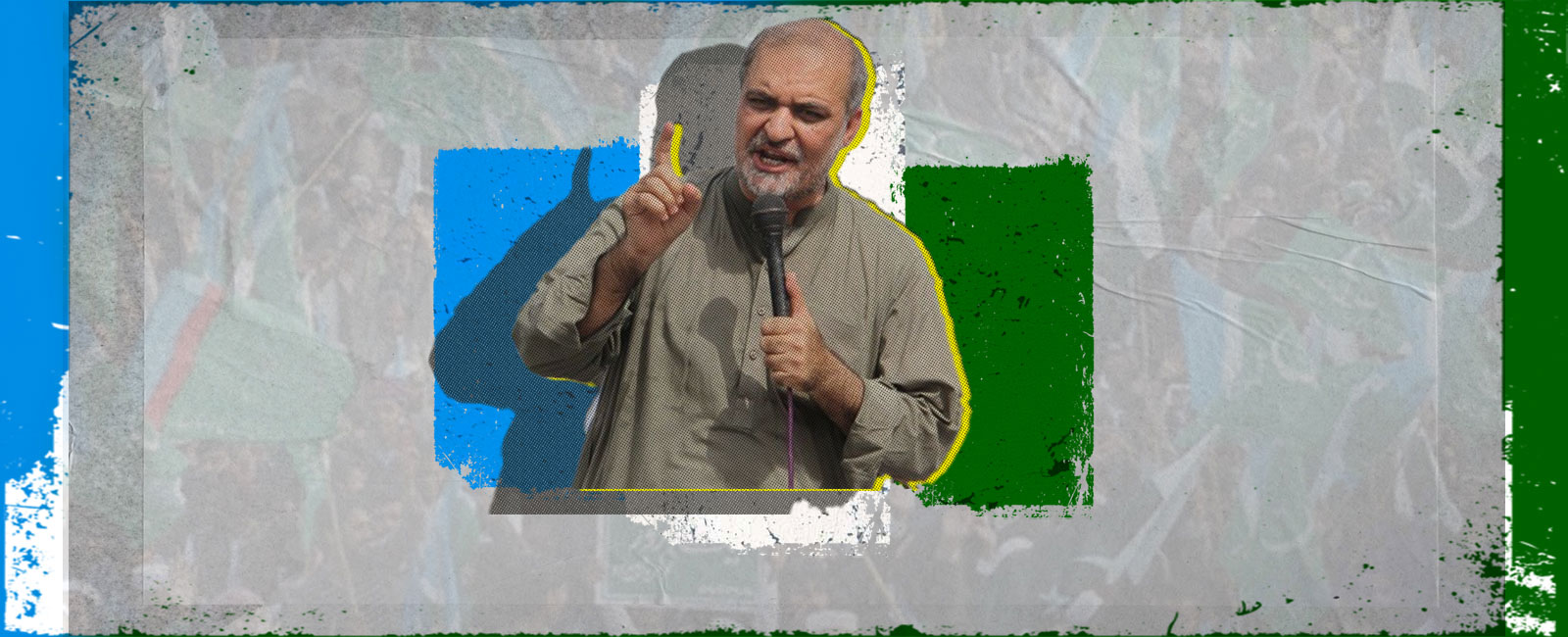Social media savvy and pragmatic: The rise of Hafiz Naeem ur Rehman within JI ranks
Although Hafiz Naeem would be a popular figure within and outside the party, he would be facing significant challenges in his ascent to the position of power

Jamaat-e-Islami (JI), the oldest religio-political party in Pakistan, is set to elect its new emir (leader) in early April for the next five years. Among the three names suggested by the party’s shura (decision-making executive council), Hafiz Naeem ur Rehman, the current emir of the JI Karachi chapter, holds prominence for a couple of reasons — he has rejuvenated the party in the country’s commercial hub and provided it with a “liberal, progressive and secular Islamic” outlook.
Unlike most Pakistani political parties, in which the top slots are reserved for the party founder or their family members and relatives, JI has a worker to leadership ladder in place. Hafiz is a beneficiary of the same system and is among the few top politicians who come from a middle-class background.
Big Picture explores his journey from being a student activist to his current position of power, analysing the impact he has had on the party.
Road to party leadership
Hafiz's political career began at 16 when he joined the Islami Jamiat-e-Talaba (IJT), the student wing of JI, in 1988. Already drawn to the religious political ideology espoused by JI founder Syed Abul Ala Maududi, he quickly rose through the ranks. This was the time when ethnic violence and fascism were escalating in the port city and other urban centres of Sindh.
By the age of 20, he had been beaten up, arrested, and booked in numerous cases. His leadership qualities, honed through clashes with rival student groups, propelled him to become the “nazim” (president) of his college and later, the head of IJT Karachi and Sindh. By 1998, he had reached the national level, becoming the Nazim-e-Ala of IJT Pakistan.

Hafiz's rise as IJT chief coincided with a crucial period for JI. The Afghan jihad against the Soviets — initially supported by Pakistan and the US — was winding down, and the “mujahideen” were being reframed as “terrorists.” Yet, his speech at the organisation’s 1998 annual convention in Islamabad continued to glorify the Afghan jihad and endorse the controversial Al-Badr militia in Bangladesh, among other crucial matters.
From his perspective, the following two major things occurred in Pakistan when he was the IJT nazim-e-ala: Pakistan became a nuclear power, and General Pervez Musharraf toppled Nawaz Sharif’s government. According to him the IJT had initiated an 11-point education campaign for a unanimous curriculum, language of instruction, and against fee hikes among other issues, inviting other student groups to join forces with them, but Musharraf’s emergency destroyed the momentum.
After completing his tenure as IJT chief in 2000, Hafiz meticulously climbed the JI hierarchy, starting from the grassroots level again. His dedication earned him the position of JI Karachi's deputy general secretary in 2005. He contested his first election in 2001 and won the seat of “naib nazim” in a Nazimabad union council. In the 2002 general election, he lost a provincial assembly seat to the Muttahida Qaumi Movement (MQM) — a dominant party in Karachi at that time.
Altaf's fall, Hafiz's rise
Hafiz's leadership since 2013 as JI Karachi's emir has been marked by a distinct strategy. Although he had been vocal on the issues of the city since assuming the charge, he arguably gained the pace later after the fall of MQM supremo Altaf Hussain.
He struck when MQM's grip on the city's politics was loosening due to the disintegration of the party into many factions and seized the opportunity smartly.
Devoid of any central figure and direction following Altaf’s explosive August 2016 speech, Muttahida failed to keep its supporters and workers within its ranks, allowing rivals to fill the political vacuum.
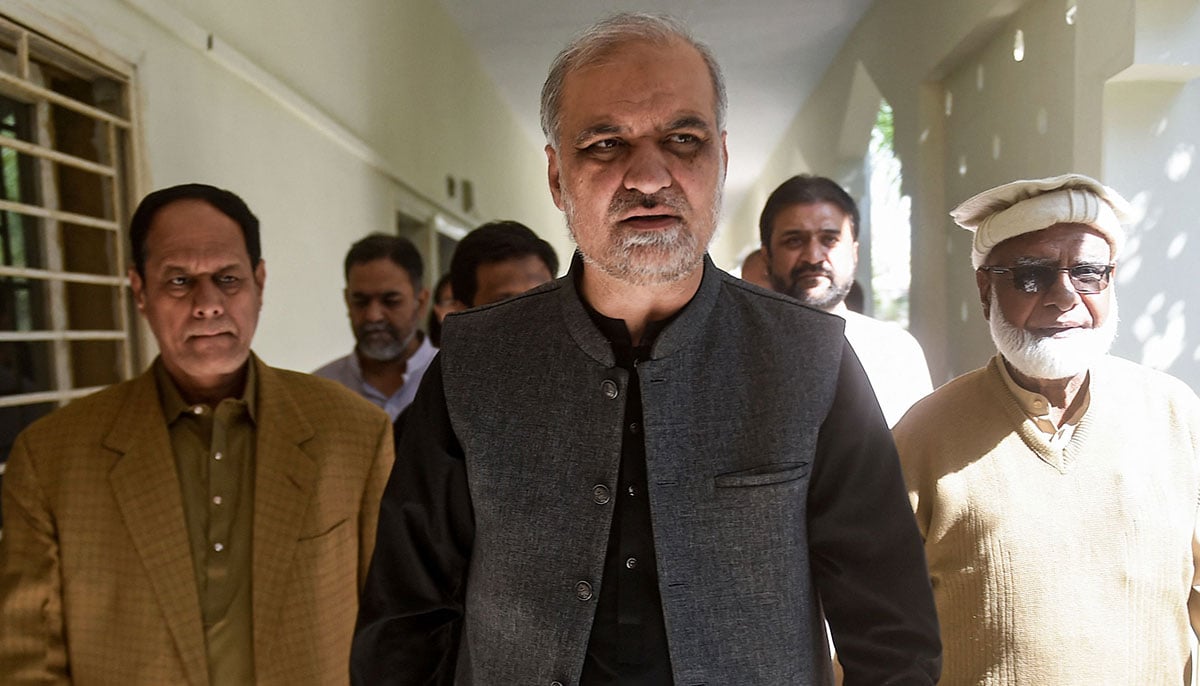
Tapping the potential, JI started forcefully highlighting the issues faced by Karahciites on a day-to-day basis and raised its voice for their redressal, which helped it create space for itself in the port city.
In 2020, the city chapter of the party launched a robust campaign, the "Huqooq-e-Karachi Tehreek" (Rights of Karachi Movement), highlighting the metropolis’ grievances – water shortages, power outages, and economic disparity. Hafiz, with his carefully crafted persona and social media savvy team, emerged as the face of this campaign.
According to Hafiz, Karachi is in a mess. "Decades of neglect by the Pakistan Peoples Party (PPP) and MQM have left the city in ruins. We, at JI, saw this vacuum and spoke out. We raised our voices on issues like K-Electric, Nadra, indigenous land encroachment by a powerful real estate tycoon, and corruption, unlike the silent others — exposing their incompetence," he told Geo.tv.
"They've been playing politics as usual, while JI filled the gap. We focused on public concerns, especially youth and women, and strengthened communication with our audiences. This strategy paid off. Our vote bank has steadily grown.
According to political analyst and academic Dr Tauseef Ahmed Khan, Hafiz brought changes to the JI’s old doctrine.
“He, along with other JI leaders, initiated a campaign for national identity cards for citizens irrespective of their religion, sect, or ethnicity. He raised his voice over the power tariff hike, and campaigned over water theft and dilapidated road infrastructure in the city,” Dr Khan mentioned.
“He gave a secular perspective to JI by going to churches and mandirs during the Covid-19 pandemic to supervise disinfectant spraying campaigns. Hafiz petitioned in the courts against the delay in local bodies election and sought amendments in the local government governance system.”
Dr Khan added that for the first time in the history of JI, women with uncovered faces also campaigned for the party, and not just them but also actresses, and the party used music significantly.
Cashing in on social media
JI Karachi — unlike other chapters of the party — has been very innovative in its use of media as compared to others and is considered by many as effective as that of PTI.
In the previous local bodies polls, they coined creative election slogans such as the famous ‘Hal Sirf Jamaat-e-Islami’, developed reels from Bollywood songs, and appeared on popular YouTube channels to connect with younger voters.
Journalist and researcher Zia ur Rehman has credited the party’s media strategy for Hafiz’s rise.
“He has gotten significant media coverage, even more than JI emir Siraj ul Haq, because Karachi is the media hub in the country. Hafiz’s politics has revolved around local issues which affect every individual. This is how his personality evolved,” Rehman mentioned.
Not only this, taking a leaf out of PTI’s playbook, they have several unofficial social media pages — like Karachi Stories — which are actively engaged in promoting Hafiz.
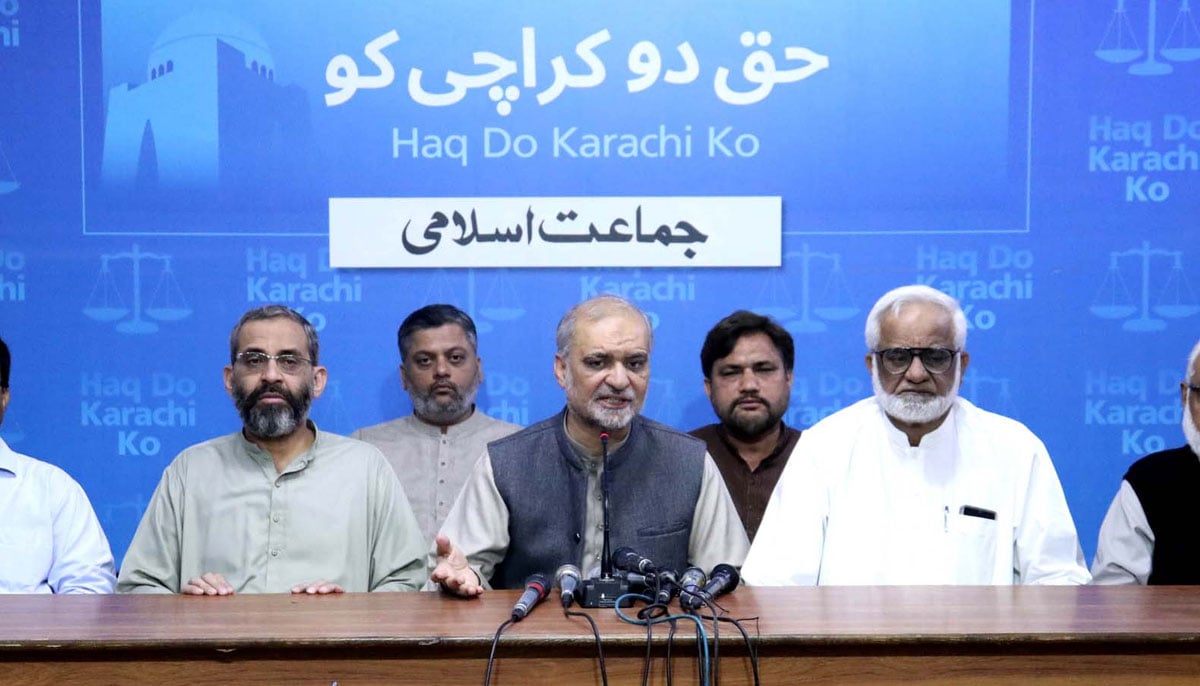
In an interview during a morning show, Hafiz said, “Our strength lies in in-house expertise. We conduct public opinion polls (both general and qualitative) to guide our strategies. Social media campaigns are crafted entirely by our team. We have a dedicated team of volunteers, some paid, but most driven by ideology. This translates to increased productivity.”
An analysis of the party's social media handles shows that its Karachi chapter has established its supremacy having 77,000 followers on X account — the highest number of followers compared to other regions. Not only this, other divisions of the party, like JI Punjab, where the party is headquartered, have only 32,300 followers. Similarly, JI KP has 13,100 followers while JI Women has 44,600 followers.
However, the party's main X handle (@JIPOfficial) has 280,600 followers.
Moreover, Hafiz's personal X account (@NaeemRehmanEngr) is among the top five most followed leaders of JI with 201,900 followers.
JI chief Sirajul Haq is on top with 1.3 million followers while Mushtaq Ahmed Khan has 207,500 followers, Liaqat Baloch 156,200, Dr Samia Raheel Qazi 115,500, Shamsuddin Amjad 75,100, Inayatullah Khan 62,400, Dr Meraj Siddiqui 43,200, Qaisar Sharif 37,300, Dr Farid Ahmed Piracha 25,200 and Mrs Aliya Mansoor 21,200 followers.
Contradictions and pragmatism
However, Hafiz's pronouncements on certain issues raise eyebrows. While vehemently criticising MQM for playing the "Muhajir card," a form of ethnic politics, he — during the Grand Democratic Alliance's protest sit-in against the February 8 election rigging at Jamoshoro interchange — praised Ayaz Latif Palijo, leader of the Sindhi nationalist party, Qaumi Awami Tehreek (QAT), as the “Baghawat ka Shair (lion of the rebellion)”.
This inconsistency exposes a pragmatic side to Hafiz's politics – perhaps cooperation trumps ideology when faced with a common political opponent. However, Hafiz reacted to this by saying that he could have said it “in Josh-e-Khitabat” (in the heat of rhetoric), but referred to the same speech in which he said that Sindhis and Muhajirs would no longer be pitted against each other.
Sharing a similar incident from the past, Dr Khan mentioned that in the 70s when PPP and the National Awami Party (NAP) started taking industries into government hold, the JI opposed the move terming it un-Islamic.
He added, however, when in the 90s the same industries were being privatised courtesy of the free-market capitalism and neoliberalism policies, the JI opposed it, causing a shift in their strategy.
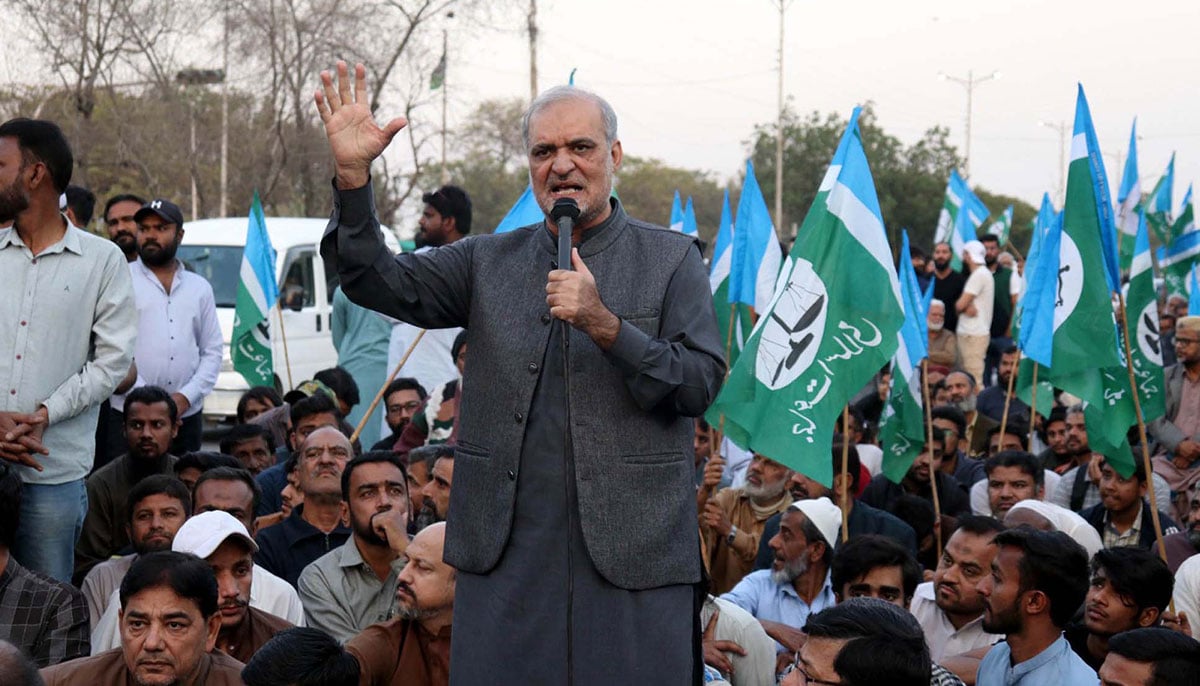
He noted that Hafiz had campaigned vehemently to shape public opinion against K-Electric for failing to provide adequate power supply to Karachi residents.
He said there was another change in the strategy as well. The party would celebrate Youm-e-Hijab each year on Women’s Day, but this time they celebrated Women’s Day instead.
Similarly, Hafiz's stance on the establishment role is intriguing. He advocates for a delicate balance between the public and the military, urging the military to stay within its constitutional boundaries. Yet, his criticism is far less pronounced compared to his fiery attacks on other political parties.
This cautious approach suggests an awareness of the power dynamics in Pakistan's political landscape.
Internal party dynamics
Hafiz's leadership style has impacted JI Karachi's internal structure. He has built a strong team around him, comprising researchers, social media specialists, lawyers, and volunteers, in contrast to the more hierarchical structure often associated with Islamist parties.
His emphasis on data-driven decision-making, further sets him apart from some traditional political leaders.
According to him, “We conducted an extensive exercise analysing public demographics and socio-economic classes, revealing that despite our efforts, we struggle to effectively communicate our work. This perception persists from several years ago. Our movement is grounded in scientific principles, drawing insights from both quantitative and qualitative research.”
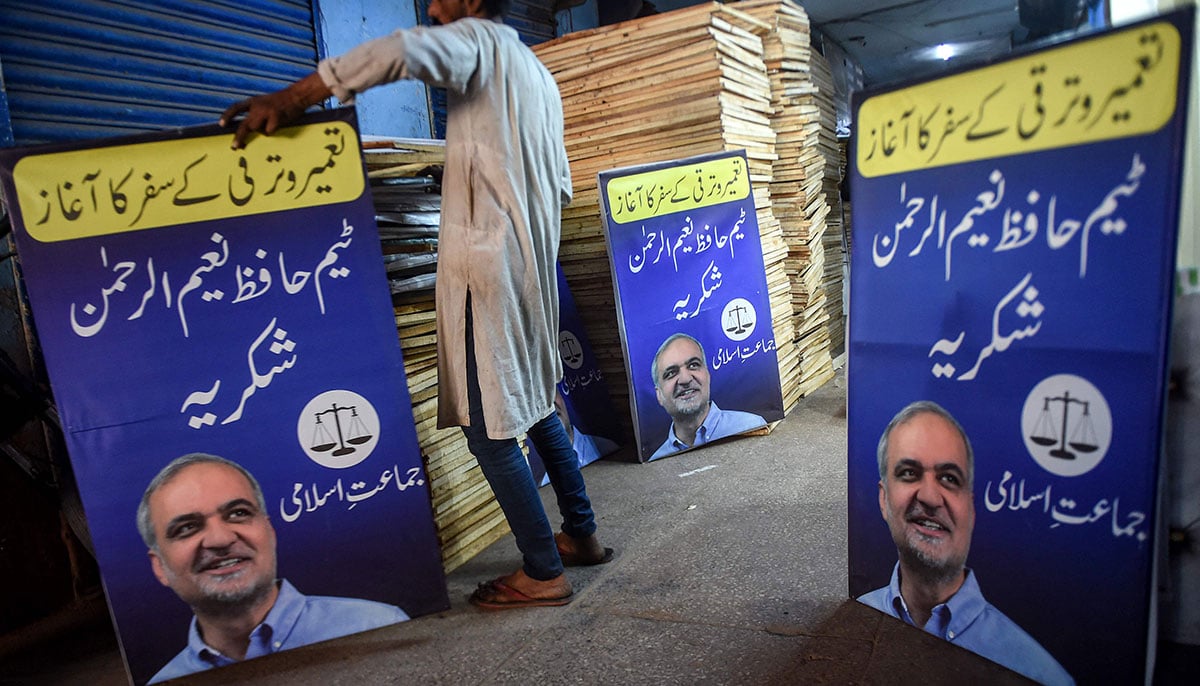
However, questions remain about the extent of ideological consensus within JI Karachi. Hafiz's focus on local issues and social welfare programmes may appeal to a broader segment of the population, but it could also alienate more hardline elements within the party. The long-term impact of Hafiz's leadership on JI's national ideology remains to be seen.
Astute politician?
When Hafiz relinquished his Sindh Assembly seat that he won in the 2024 election, some people called him an astute politician as with two seats, the party could not make a big difference in the provincial legislature and wanted to remain focused on the city council, where they enjoy a considerable mandate.
To this Hafiz said, “This isn't about where the Karachi case could be taken. It's a matter of principle and conscience. If I had won the seat, there might be a case to be made that I relinquished it to keep the local body seat. However, the reality is that I lost by a few thousand votes. Their goal was to silence us on the seats we actually won. It was a political bribe, a lollipop offered by those who wanted to weaken JI's influence or hold it hostage.”
Hafiz was not only widely covered by international media when he gave up the seat last month, he was also praised by political analysts for the move.
According to Dr Khan, this was a "positive" and "democratic" act.
Journalist Rehman notes that Hafiz announced the move after a thorough probe into the matter.
The national stage and the future of JI
Hafiz's success in Karachi has inevitably fuelled speculation about his potential for the national leadership of JI. His charisma, communication skills, and ability to connect with younger demographics make him a potentially attractive candidate.
Rehman said Hafiz has the ability to engage with the audience as he is eloquent and assertive. He added that Naeem had contested the recent local bodies and the general election on his picture. Naeem’s campaign posters can be seen behind rickshaws, on street polls, and in other locations, which appear strategic from the marketing point of view to attract significant eyeballs.
"The Pakistani nation is religious, however, they don’t vote for religious political parties in the election because they prefer someone who speaks about solving their everyday problems. And understanding this issue Hafiz put his focus on local issues, while putting the religious issues behind."
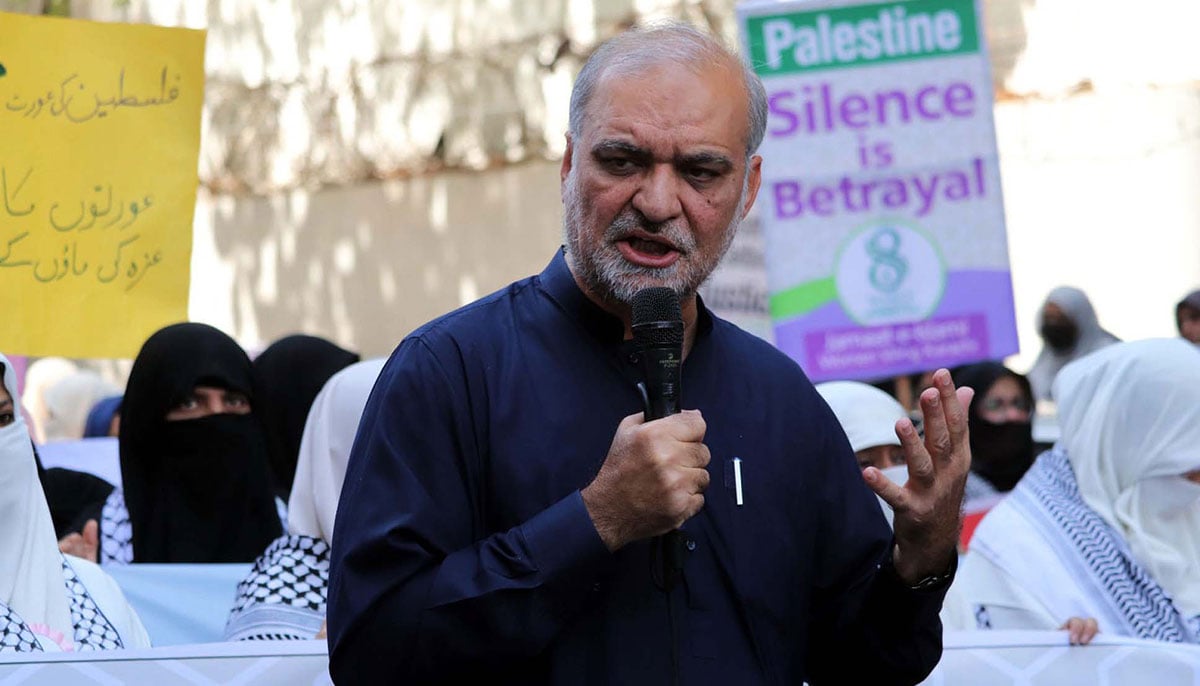
Potential leadership challenges
According to Rehman, although Hafiz would be a popular figure within and outside the party, he would face significant challenges in his ascent to the position of power. Not only would he need to improvise the JI national-level political strategy, which would get him some opposition within the party, but he would also need to come up with issues that resonate with the general public and not just Karachi.
He said JI may need an aggressive person like Hafiz to raise the issues assertively.
"There is an anomaly to this thesis that the public doesn’t vote on the basis of religious issues and that is Tehreek-e-Labbaik Pakistan (TLP), which capitalised on the blasphemy issues and garnered votes more than what the JI and Jamiat Ulema-e-Islam (Fazl) obtained from all over the country," Rehman said.
"PTI has dented the JI vote bank by getting the anti-MQM votes from Karachi and in comparison to PTI, JI has not resonated with the young voters much. This could be the personality issue. Most people, especially the youngsters, like Imran Khan because of his personality. On the other hand, JI discourages personality politics, yet, it is needed in the country’s political landscape.”
Dr Khan is also of the same opinion, and he referred to his article ‘Jamaat-e-Islami Karachi Ka New Edition’ published in the Express News on 18 January 2023, as saying, "Although Naeem has provided traction to JI in Karachi, it is yet to be seen whether the party adopts a similar strategy on the national level".
JI Karachi has provided a liberal, progressive, and secular outlook to the Islamic party, which is different from the past, according to Dr Khan.
In conclusion, Hafiz Naeem ur Rehman is a complex and intriguing figure. He has revitalised JI Karachi and presented a more nuanced image of the party. His focus on local issues, innovative communication strategies, and emphasis on social welfare programmes have resonated with Karachi's electorate.
However, questions about the depth of his ideological shift and his ability to translate his success to the national stage remain.
Overall, Hafiz's leadership represents a potential turning point for JI. Whether he can navigate the treacherous waters of Pakistani politics and steer JI towards a more moderate and inclusive future remains to be seen. His success, or failure, will be a significant indicator of the evolving political landscape in Pakistan.
Zubair Ashraf is a staffer at The News covering labour. He is also pursuing a master's degree in digital narratives from Internationale Filmschule Köln, Germany. He posts on X @zubairrashraf
Disclaimer: The viewpoints expressed in this piece are the writer's own and don't necessarily reflect Geo.tv's editorial policy.



